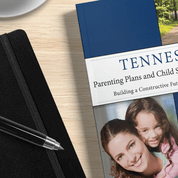Mom Loses Custody After Prescription Drug Arrest

Tennessee Parenting Plans book by Miles Mason, Sr. available on Amazon
Tennessee child custody modification case summary.
Samantha Audrey Haak v. Christopher Rodney Haak
The mother and father in this Hardin County, Tennessee, case were the parents of two minor children at the time of their 2014 divorce. They entered into an agreed parenting plan naming the mother the primary residential parent. The father was awarded weekend parenting time, and holidays were equally divided between the parents. At that time, the mother lived in Savannah, Tennessee, and the father lived in Corinth, Mississippi.
The father later notified the mother that he was moving to his native New Jersey. In 2016, the mother filed a petition to modify the parenting plan, and also moved to have the father be held in contempt. The father filed an opposition, and alleged that the mother had been charged with possession of a controlled substance with intent to deliver, and forgery. He alleged that the mother’s drug use was causing the children to be malnourished, truant, and unsafe. He submitted a proposed parenting plan naming him the primary residential parent, with the mother receiving 51 days of parenting time.
A trial was held. The mother admitted that she was arrested, and that she had a prescription drug addiction following the birth of the youngest child. Her nursing license had been suspended, but she eventually regained it. She testified that she had been sober for more than 18 months, although she did admit that affected her ability to parent for a time.
The father also alleged that the mother whipped the children with a belt. She admitted that she had initially used this punishment, but that she stopped after the father objected.
After hearing the evidence, the lower court held that there had been a material change of circumstances, namely the proposed move to New Jersey and the criminal charges. It named the father the primary residential parent and granted the mother 110 days of parenting time. The mother then appealed to the Tennessee Court of Appeals.
The appeals court noted that the most important issue in the case was the best interests of the children, and focused on that question. While there is a statute listing factors to consider, those are non-exclusive, and the lower court has a great deal of discretion to weigh the facts of the particular case.
In this case, the lower court made detailed findings on each of the statutory factors. The appeals court noted that some clearly favored one parent, but many were more mixed. For example, it noted that both parents had a strong emotional connection to the children.
After reviewing all of the lower court’s findings, the appeals court agreed with the lower court that, overall, the factors favored the father. For this reason, the Court of Appeals affirmed the finding that the change was in the children’s best interest.
The Court of Appeals also affirmed the lower court’s ruling regarding transportation costs, and the lower court’s failure to award attorney fees to the mother. It affirmed the judgment and sent the case back to the lower court for any other necessary proceedings.
No. W2018-00048-COA-R3-CV (Tenn. Ct. App. Dec. 17, 2018).
See original opinion for exact language. Legal citations omitted.
To learn more, see Modifying Custody & Parenting Plans.
See also Tennessee Parenting Plans and Child Support Worksheets: Building a Constructive Future for Your Family featuring examples of parenting plans and child support worksheets from real cases available on Amazon.com.









